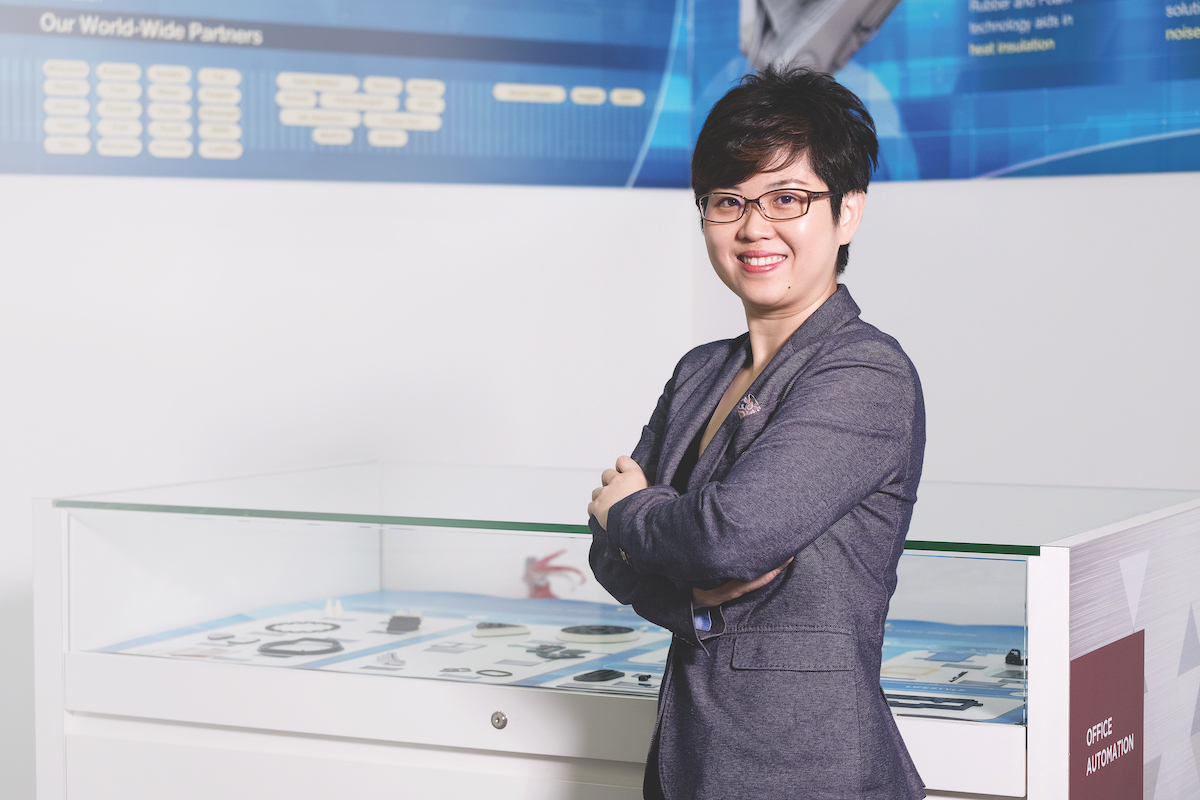Growing up, Armstrong Industrial Corporation Group Deputy CEO Phyllis Ong, always knew she would end up working in business. “I was interested in the dynamics of business,” she says, “and how people interact and make decisions.” However, she didn’t immediately gravitate toward her family’s business. Phyllis began her professional career as a consultant before working in brand management for personal care brand NIVEA and later, Johnson & Johnson. Afterwards, Phyllis decided to set up her own restaurant in Singapore, Whole Earth. “I ran it for three years,” she says. “I was lucky to find a good business partner.”
With a partner onboard, Phyllis had some extra time on her hands. “I was a bit curious about what my parents did for a living for the first 35 years of my life,” she continues. “Since I had the spare capacity, and my business partner was doing quite well with the restaurant, I thought I might take time to learn and experience a very different industry.”
That business was Armstrong Industrial Corporation, which Phyllis’ parents, Gilbert and Patricia Ong, founded in Singapore in the mid-1970s. The company provides technical solutions in noise, vibration and heat management for several industries, including automotive, industrial, consumer electronics and healthcare. The company was named after the first man to land on the moon, Neil Armstrong, because of Gilbert’s belief that like Neil, the company could achieve massive success and that anything is possible.

When Phyllis joined, she intended to stay only for two years. But 2018 marks eight years since she’s been with the company. “It’s getting more and more exciting,” she says. “Together with my brother Eugene, we are very keen to contribute more to our family business in the future.”
With Phyllis on board, the company underwent a number of subtle changes. “Traditionally, Armstrong had a very conservative, family-style working culture,” she explains. “A lot of our management staff have been with us for 20 years. Over the past eight years, the company has grown regionally and I wanted to retain the positive family values and working culture, while evolving it to be more willing to take calculated risks and bolder steps for a brighter future.”
Phyllis adds that the company’s own Singapore home-ground operations also had to evolve over the past decade. “Our Singapore market was primarily dependent on the hard disk drive industry,” she explains. “However, due to manufacturing costs and labour shortage, it’s not feasible to continue operating like this in Singapore. My father made the tough decision to move the factory to Johor Bahru, joining 17 overseas factories in six other Asian countries.”
Further, Phyllis and her core leaders have been focusing on developing bigger and more strategic customers. Recently, they have been working closely with established automotive brands such as BMW, Benz, Jaguar Land Rover and strong consumer brands such as Dyson, Bosch, Sony and Yamaha.
“Our approach for this regional initiative is to focus on the 80/20 principle,” she says. “And that means asking ‘Who will you rely on to build your own branding and business growth?’ By choosing the best customers, they also challenge you to always be the best.”
“By choosing the best customer, they also challenge you to be the best.”
Team effort
Armstrong is focused on innovation, which starts with having its own definition of it. “Everyone defines innovation differently,” Phyllis says. “We don’t see it as just a product or service – it’s fundamentally a perspective. And we want to disrupt current perspectives with superior, more valuable solutions for both our internal and external customers.”
To better address innovation, the company has two special divisions, AXCEL and ATOMIC. AXCEL consists of both business and corporate system development for existing businesses. The business development team focuses on developing new, more sustainable material and product solutions, while forging more strategic partnerships for global networking and future business opportunities.
The corporate system development team focuses on re-designing for superior system standards and scaling level of intelligence across the organisation. “I call them my Fantastic Four team,” Phyllis says. “They are four management staff who are very familiar with the company and bring amazing advancement to the corporate and operations systems.”
The other innovation-centric team is the ATOMIC team, which stands for the ‘Answers for Tomorrow Innovation Centre’. This team is tasked with developing and promoting innovative product solutions and intellectual property for the healthcare and consumer markets. Recently, the team partnered with a bio-material technology start-up to develop wound care products with a local hospital and other exciting healthcare products in the near future.

Leading with tenacity
Phyllis believes the best decision she has made so far as Group Deputy CEO was to shift the company’s perception from being just a supplier. “The decision I made was that we should be influential, not just a supplier for our customers,” Phyllis says. “We need to be more influential with our international customers, continuing to develop new ideas and better solutions at a globally competitive level.”
With respect to her leadership experience, Phyllis emphasises the importance of having a strong focus. “You need a tenacious vision because you need to strongly believe in your mind and heart that it’s possible. Otherwise, you would just be leading administrators who are following existing systems and complying,” she says. “We want all our leaders to believe that they are part of something great and exciting. That they can be very proud to make a positive impact on our customers and consumers around the world.”
And to support this vision requires the courage to both succeed and fail, as well as developing the habit of thinking, reflecting and learning. “So much of how we think and act is due to habit,” Phyllis explains. “But it’s important to think about them, step back and reflect. You may need to unlearn some things that don’t serve well anymore, and develop new habits that serve you and your organisation better.”
Phyllis Ong’s favourite quote is from Albert Einstein, which says, ‘We cannot solve our problems with the same level of thinking we used when we created them.’ “This is my favourite quote because, as leaders, we are facing challenges and problems every day, and a lot of times we are stuck with them,” Phyllis explains. “So this quote inspires me to just challenge myself to get out of that level of thinking and see it from another perspective, in order to resolve the problem.”


